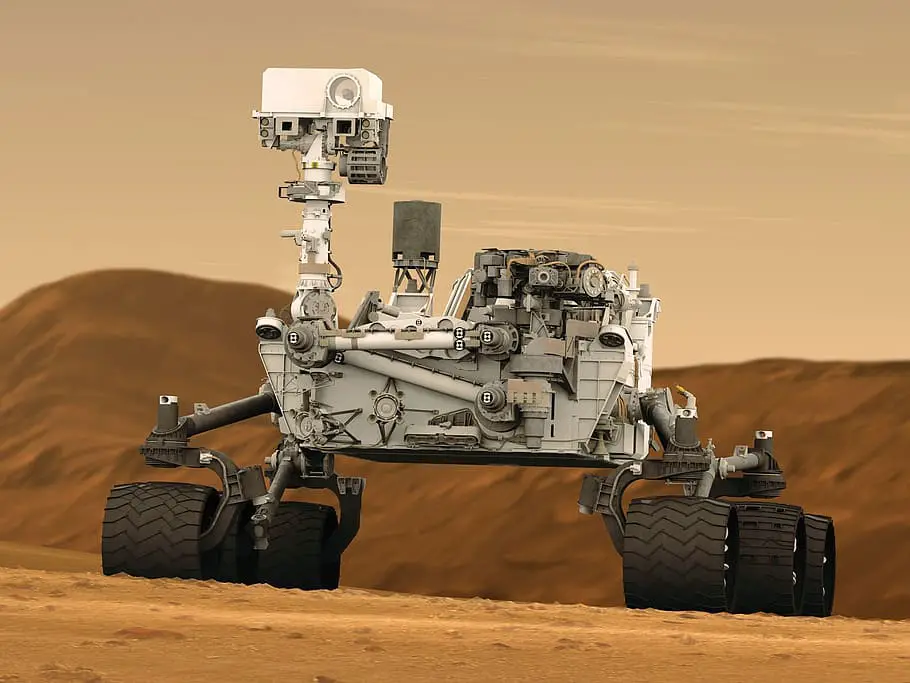The Perseverance rover, which is operated by NASA, has made a startling discovery: it has found compelling evidence of organic compounds in rocks at the Jezero crater on the planet Mars. This discovery has piqued the interest of academics and anyone who are passionate about space because it raises the potential that there was life on Mars in the distant past. However, it is essential to keep in mind that the data, despite the fact that it is intriguing, does not constitute conclusive proof. It is still more likely that the phenomenon in question can be explained by non-biological processes. Let’s go even deeper into this remarkable discovery and the ramifications it has for our understanding of the past of Mars.
The Search for Ancient Life, as well as the Mission of the Perseverance:
Perseverance was a spacecraft that was designed to investigate the Jezero crater on Mars. It was launched into space in July 2020 and successfully landed on the red planet in February 2021. The primary goal of the mission was to look for indications of ancient life. It is believed that this ancient impact crater previously contained a lake, which makes it an ideal place for investigating the possibility of the existence of microbial life in the past.
Organic chemicals Have Been Discovered
The Perseverance rover’s Subsurface ExoMars Subsurface Hydration Experiment (SHERLOC) has discovered organic chemicals hiding beneath the rocks of the Jezero crater. These findings were made possible by the cutting-edge scientific equipment that the rover is equipped with. However, at this point in time, the precise nature of these chemicals is yet unknown. The discovery is important because it adds to the body of prior research that found organic molecules on Mars, which were found for the first time in 2015. Recent discoveries made by the Perseverance spacecraft provide further possible fingerprints of organic compounds. This further fuels discussion about the potential for the planet to have harbored life in the past or in the present.
Understanding the Origin of Organic Molecules
Understanding Where Organic Molecules Come From Organic molecules, by definition, are made up of carbon and hydrogen atoms, and their formation can occur via either biotic or abiotic processes. Before drawing any conclusions, it is important to investigate and rule out any other possible explanations that are based on non-biological processes, even though their presence raises the chance that there was once microbial life in the area.
Mineral Signals Associated with Non-Biological Processes
Signals connected with Minerals That Do Not immediately Relate to Living Processes Astrobiologists investigating the Jezero crater have also found several signals connected with minerals that do not immediately relate to the processes of living organisms. These indications indicate the presence of abiotic mechanisms that have the potential to be accountable for some of the organic molecule signatures that have been identified. It is vital to explore these non-biological processes in great detail in order to have a deeper understanding of the complicated geological history of Mars and to appropriately interpret the information that is now available.
The Way Forward
The finding of organic molecules on Mars represents an important milestone in our ongoing research of the red planet. The next step in this process is to determine how these molecules got there. However, while coming to conclusions concerning the possible presence of life from the past, it is essential to proceed with extreme caution and in a manner consistent with the scientific method. The data that was acquired will be meticulously analyzed by the researchers, who will utilize a wide variety of scientific methods in order to determine the precise substances that are contained in the rocks. Before pondering the fascinating prospect of life having existed on Mars in the past or present, the researchers plan to use this method to exclude the likelihood of any abiotic processes playing a role.
The Perseverance rover, which is operated by NASA, found compelling evidence of organic molecules within rocks at the Jezero crater on Mars. This fascinating prospect raises the possibility that there was once life on the Red Planet in the distant past. The scientific community, on the other hand, stresses the importance of conducting additional research and looking at alternative hypotheses that are based on processes that are not biological. The continuous exploration of Mars by the Perseverance mission is well positioned to solve a great deal more of the red planet’s riddles, which has the potential to radically alter our perception of the past of the planet and the likelihood of life beyond our own. Discoveries such as this one serve as beacons of hope, urging us to persevere in our search for answers to age-old questions about the universe and our role within it. As mankind travels further into the cosmos, we will continue to make discoveries such as this one.
![]()
